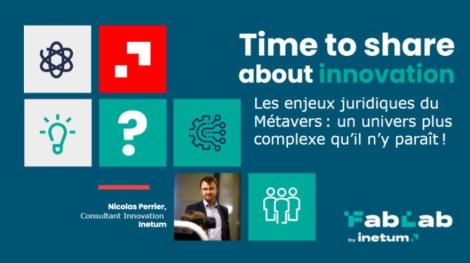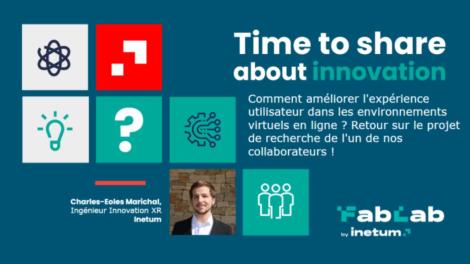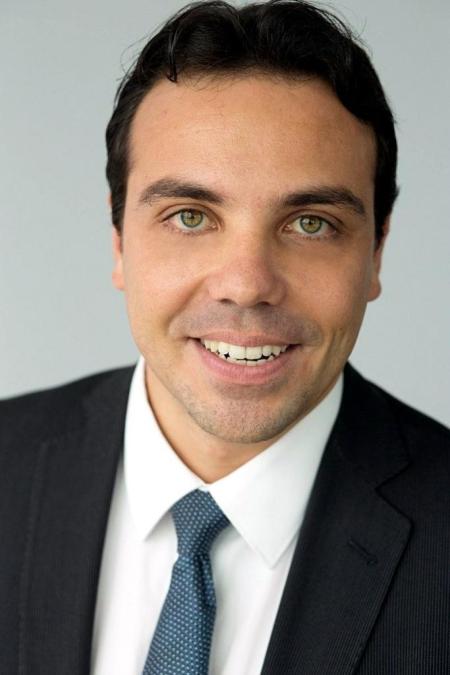Scientific research
Scientific research
Our innovation strategy is further supported by various partnerships aimed at investigating key scientific areas where the Group does not have the required expertise, but also, thanks to its partners, by developing new uses and new approaches in a co-innovation approach. These partnerships also aim to accelerate the arrival of innovations on the market.
Academic theses
We continued our research activities in partnership with universities on :
Education research program
Education
Research program dedicated to innovation in territories and the smart city
ETI Chair
Expert opinion
"The Metaverse phenomenon is going to affect all areas of society in the years to come, also at the economic level (just as with the Internet and mobile): all types of business are going to be impacted. The need for law and regulation in this new space is indisputable."

A look back at the research project of one of our employees!
"For Inetum, the research approach is crucial to bringing our solutions to market. In order to improve interactions in UMI3D-based virtual worlds, we investigated how to improve the most common interaction in a 3D virtual environment (VE): selection."


Contact us
Christophe Sabet
Financing and R&D Partnerships Manager
Correio eletrónico: christophe.sabet@inetum.com